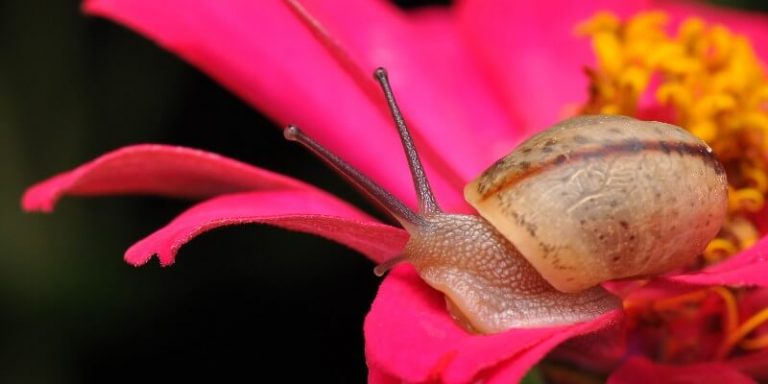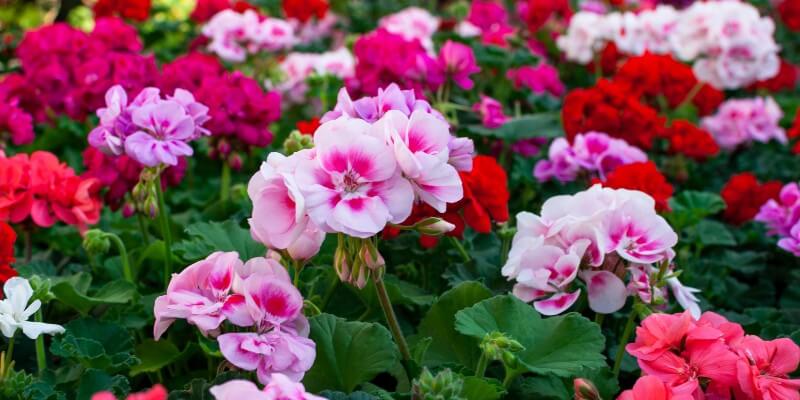After spending hours planting carefully chosen flowers or tending lovingly to a vegetable patch, the sight of creepy crawlies will make any garden lover’s heart drop. While some can be hugely beneficial, helping to pollinate and cultivate various plants, there are many that quite rightly earn the title, ‘pest’!
Although there are many ways you can attempt to eradicate these unwanted visitors chemically, this can also have an adverse effect on the plants you’ve painstakingly maintained. Fortunately, there is an abundance of non-toxic ways to deter pesky bugs, flies and rodents, mainly in the form of pest repellent plants for your garden. So, instead of using pesticides and potentially damaging products, why not consider incorporating some of these rodent and insect repellent plants?
Our Top Pest Repellent Plants For Your Garden
Whether you have always been a keen gardener or plan to take up the hobby this summer, one thing that is always beyond frustrating is those nasty pests. While using chemical products can resolve this problem quickly, like many, we believe strongly in protecting nature, wildlife and animals around us. This means that almost all of our suggestions will simply deter insects or rodents rather than harm them.
Thanks to mother nature, the natural resources we can choose from to repel pests are plentiful. And, as experts in grounds maintenance in Milton Keynes and the surrounding areas, we have a wealth of knowledge on the qualities of different plants. To lend you a helping hand in your garden creations, here are the top plants that could prove to be an ally to anyone with green fingers:
Cat Repellent Plants:
Spider Repellent Plants:
Slug Repellent Plants:
Plants That Repel Flies:
Insect Repellent Plants:
Plants That Repel Rodents:
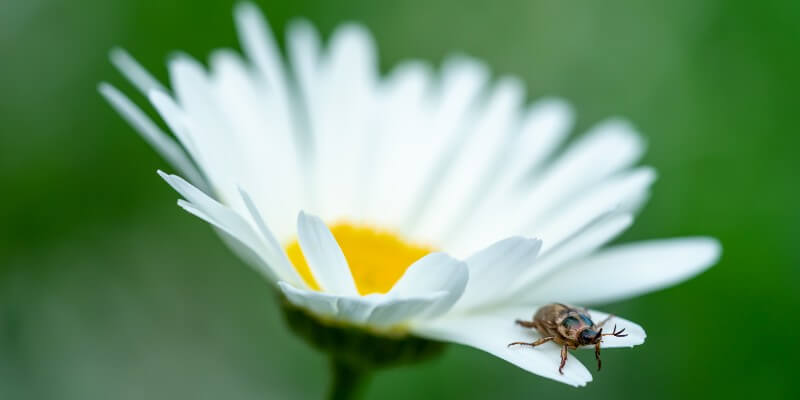
Cat Repellent Plants:
If you’re a gardener who also happens to love cats, you may have experienced the frustration of trying to maintain a beautiful garden while dealing with cat-related damage. From using garden beds as litter boxes to scratching up plants and lounging in the wrong places, cats can cause some serious headaches for gardeners. But don’t worry, there are some simple and natural solutions you can try to keep your furry friends from ruining your gardening efforts!
Coleus Canina
Also known as the “Scaredy-Cat Plant”, the Coleus Canina is a common plant used to deter:
- Rabbits
- Cats
- Dogs
- Foxes
This plant emits a potent scent that these animals find extremely unpleasant, making it a great natural deterrent that is particularly effective at keeping cats away from your garden beds. As any cat owner knows, cats have a tendency to dig and lounge in garden beds, which can be very frustrating for gardeners, but by incorporating this plant, you can still welcome these fluffy creatures into your garden, but create a barrier to protect your most precious plants and flowers.
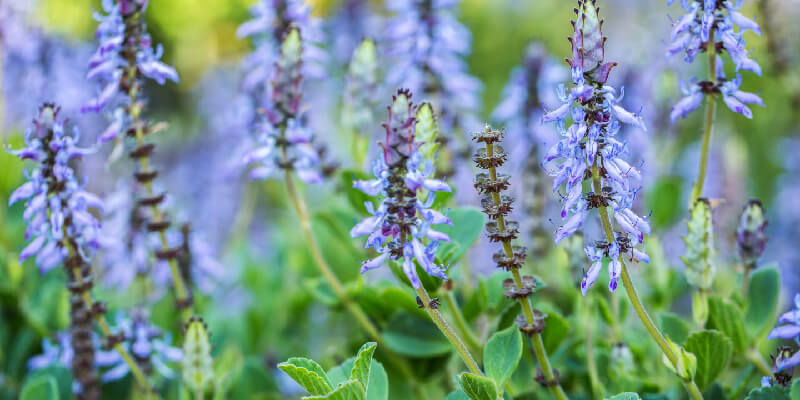
Lemon Grass
Lemon grass is a fragrant plant that is commonly used for cooking purposes, but did you know that it can also be used to repel cats from your garden? This plant contains citronella oil, which has a strong scent that many of the following creatures find unappealing:
- Mosquitoes
- Cats
- Rats & Mice
By planting lemon grass in your garden or placing it in pots around the perimeter of whichever area you want to protect, you can help to keep cats, and other pests, away from your plants and flower beds – and the best part is, lemon grass is completely safe and non-toxic for both animals and humans.
In addition to repelling your unwanted guests, lemon grass has several other benefits for your garden; for example, it can attract beneficial insects like bees and butterflies, which are necessary pollinators.
To get the most out of your lemon grass plant, it’s important to give it plenty of sunlight and water and to prune it regularly to encourage healthy growth. With a little bit of care and attention, your lemon grass plant can help to keep your garden looking beautiful and free of pesky cats!
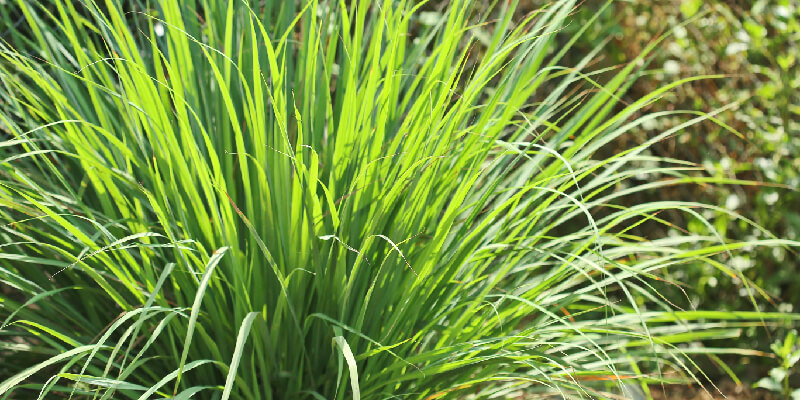
Spider Repellent Plants:
Whilst spiders don’t tend to attack your plants directly, they have a habit of catching pollinating insects or discouraging them from visiting your flowers (which, as we all know, is vital for the development of your garden). Well, fear not! These spider-repelling plants contain natural chemical compounds that spiders either find toxic or simply don’t like! Meaning if you include these plants in your garden, you can help deter spiders from making a home in your space.
Eucalyptus
When it comes down to repelling spiders, the eucalyptus plant will be your best friend! Its eucalyptol compound is extremely toxic to the following pests:
- Roaches
- Ants
- Spiders
- Flies
Make sure to choose a sunny spot with well-draining soil for your eucalyptus plant, and regularly water it during dry spells. To retain moisture when planting outdoors, you can place a layer of mulch around the base of the plant.
And as an added bonus, eucalyptus can also be used to make a natural spider repellent spray by boiling its leaves in water and then straining the liquid into a spray bottle, which makes it super handy around the house as well!
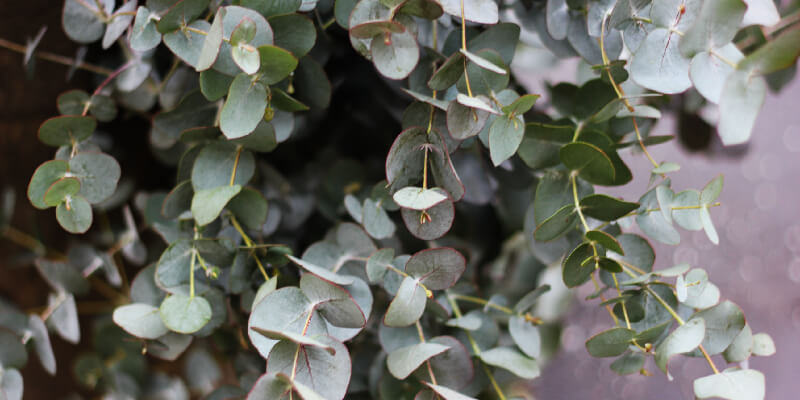
Other Ways To Repel Spiders
Other spider-repelling plants include lavender, lemon balm, garlic, and chrysanthemums. It’s important to note, however, that these plants are not a foolproof solution for getting rid of spiders completely. While they can certainly help make your garden a less appealing place for spiders to hang out, they may not completely eliminate them. This short video goes into a little more detail on what you can do to keep those spiders away.
To further reduce the number of spiders in your garden, there are a few other things you can do. Keep your garden tidy by removing any debris, fallen leaves, or other clutter that might provide a cosy hiding spot for them. Also, try to avoid overwatering your plants, as damp areas can be particularly attractive to spiders too. If you need a helping hand with this, our teams are highly skilled in landscape maintenance in Milton Keynes and would be more than happy to work with you to create a package tailored to your specific needs! And if you’re not sure, feel free to have a read of our previous article, What is Landscaping?
By taking these steps, along with incorporating spider-repelling plants into your garden, you can help to reduce the number of crawlers in your outdoor space. And as always, remember to appreciate the vital role that spiders play in our ecosystem, and their contribution to controlling the population of other insects and pests in our gardens.
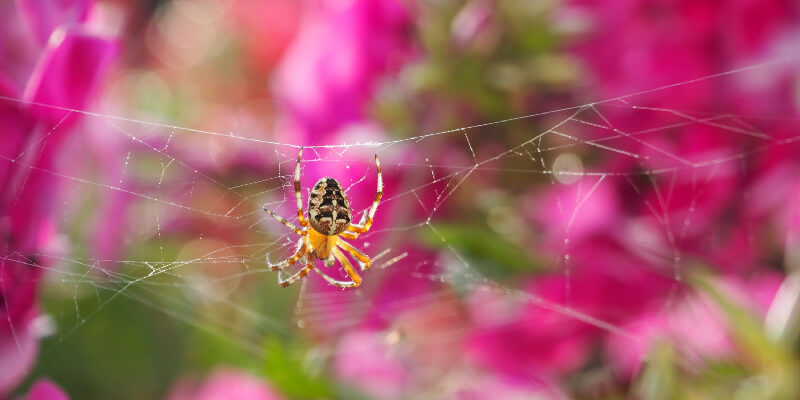
Slug Repellent Plants:
Slugs can cause a significant amount of damage to plants in a number of ways; they munch through your precious crops leading to visible damage, such as holes in leaves or completely eaten plants – not to mention the slimy trail they leave behind, which can make the plant more susceptible to fungal and bacterial diseases, causing damage or even death. Overall, the damage caused by slugs can lead to significant losses in your garden, as well as unsightly and unhealthy plants. That’s why it’s important to take action to protect your plants from these pests, which you can do using these useful plants.
Mint
While many people like to add this plant chopped up to their roast lamb or mojito cocktail, it’s also a great addition to outside spaces in a bid to keep pests away. We all enjoy the refreshing smell that mint gives off, but slugs particularly absolutely hate it, along with the following pests:
- Mosquitoes
- Mice
- Snails
- Ants
When grown in the ground, mint grows aggressively, so it is best contained in pots and placed around the plants you want to protect. You can even sprinkle some of the chopped up leaves around your garden and patio to ward off unwanted visitors. You can buy mint in various outlets, although we love the selection of differently scented mints on offer from Hetty’s Herbs & Plants.
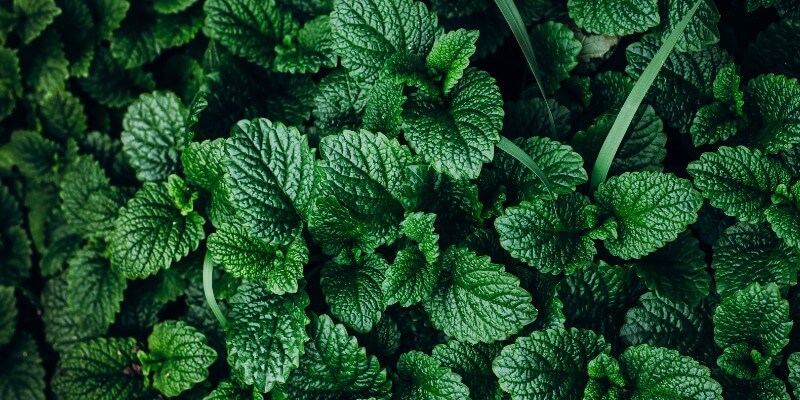
Lambs’ Ear
Lambs’ ears are like the cosy, fuzzy blankets of the garden world – but not only do they look cute and cuddly, but they also have a secret purpose making them a highly treasured addition to any garden. What is it, you may ask? Well, these fluffy leaves have a unique texture and scent, both of which slugs and snails can’t stand, so planting lambs’ ears in your garden will help to keep them at bay! In fact, their distinctive features can help to repel a few different animals that may be poking around in your garden, especially:
- Deer
- Rabbits
- Slugs & Snails
The best part? Lambs’ ears are super easy to grow and maintain, so you don’t need to be a green-thumbed expert to add them to your patch; pop them in the ground and watch them flourish while protecting your other plants. And, with their soft, silvery-green leaves, they can add a touch of charm to any outdoor space. So why not give these little helpers a try? You can find lambs’ ears at your local garden centre or order them online from a reputable plant shop; Waitrose Garden have some lovely ones available!
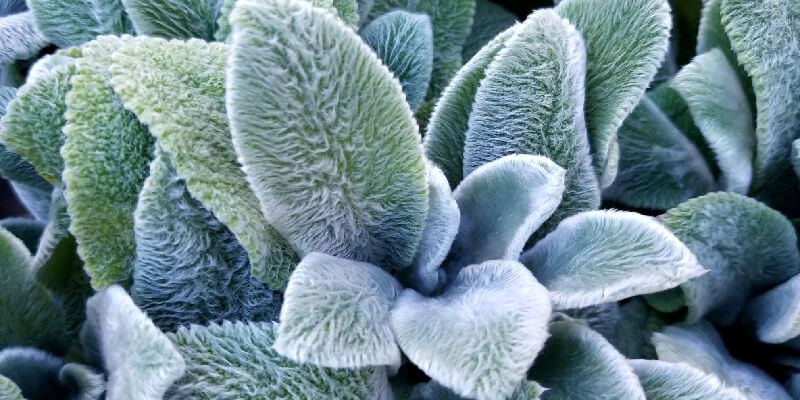
Plants That Repel Flies:
Plants such as sunflower, fennel, and parsley attract flies as they offer an excellent food source; however, this results in stunted growth or discoloured leaves. Try using some of these plants that repel flies to resolve the issue:
Basil
Although this may not be the prettiest of plants, its benefits to gardened areas, not to mention the kitchen, are endless. The strong smell that emanates from this herb helps to keep the following bugs away:
- House Flies
- Mosquitoes
- Mosquito Eggs
The best way to keep basil in the garden without ruining your landscape is to keep a pot on your kitchen window ledge, which can help to keep pesky flies and mosquitoes away during the summer months. It’s also great in containers by the back door, where it’s easily accessible for use in the kitchen. In fact, Epicurious has 87 easy and super tasty recipes including basil, so you can also use it to create delicious things to eat!
Basil plants can be picked up from garden centres and well as in the vegetable aisle in supermarkets. We would recommend taking a look at the selection of basil plants on D.T.Brown. Alternatively, for those that like to see their plants grow from seeds, you can find basil seeds on Sowseeds and a guide on how to grow them on Gardeners World.

Lavender
While many people love the smell of lavender, whether it be essential oils or lavender pillows, most bugs and insects hate it. In fact, the only insects to enjoy the scent are bees, which are very beneficial in terms of pollination. The most common pests to be deterred by this vibrant plant are the following:
- Fleas
- House Flies
- Moths
Being a perennial herb, in essence, this plant is drought resistant and, once established, will stay in place almost all year round. Lavender World has a lovely selection of pot-grown lavender and shrubs to choose from, so you can select the best option for your outdoor setting.
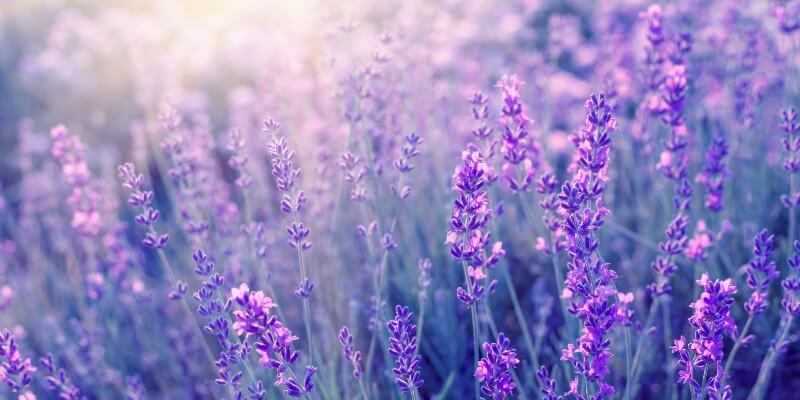
Carnivorous Plants
These sound pretty lethal, and in the pest world, they are! Not only are they alluring and beautiful to look at, but carnivorous plants also prove to be very effective in literally capturing and ingesting garden pests such as these:
- House Flies
- Mosquitoes
- Moths
Usually quite exotic in appearance, these plants need to be placed in a sunny area in order to keep moist and do their job effectively. A popular carnivorous plant is a pitcher – the largest plant in the group. Their funnel-like appearance traps their prey and makes it almost impossible for them to escape. The plant then digests the insect and uses it for its own nutritional gain – brutal! 247 Pest Control has a great article detailing the best carnivorous plants when considering garden pests.
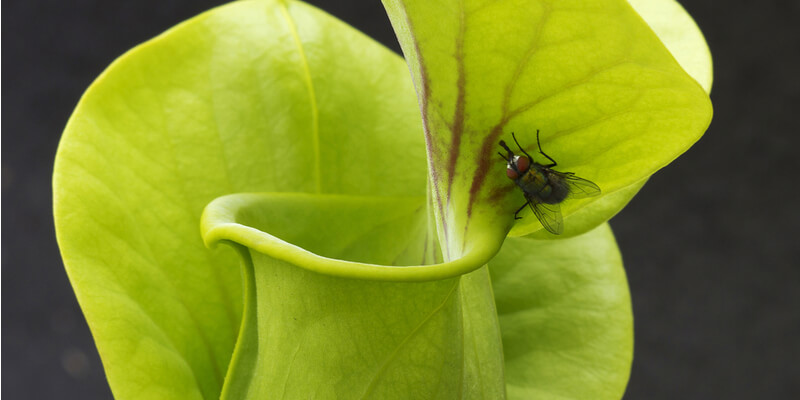
Insect Repellent Plants:
From slugs and snails to beetles, insects are, by far, a gardener’s worst enemy. Luckily, there are many plants that repel bugs while also adding a vibrant touch to your outdoor space, many of which we use when working with clients on their landscape maintenance!
Petunias
Commonly considered nature’s pesticide, petunias are available in an array of bright colours. While they may look pretty and delicate from the outside, these flowers are fantastic at repelling a range of undesirable pests, including:
- Aphids
- Tomato Hornworms
- Asparagus Beetles
- Leafhoppers
Not only are they easy to grow in an abundance of settings, such as containers, flower beds and hanging baskets, but they also give off a liquorice-like scent that helps to drive away pests. If you’re looking for help in planting your petunias, then J. Parkers has a fantastic guide that we think will come in handy.
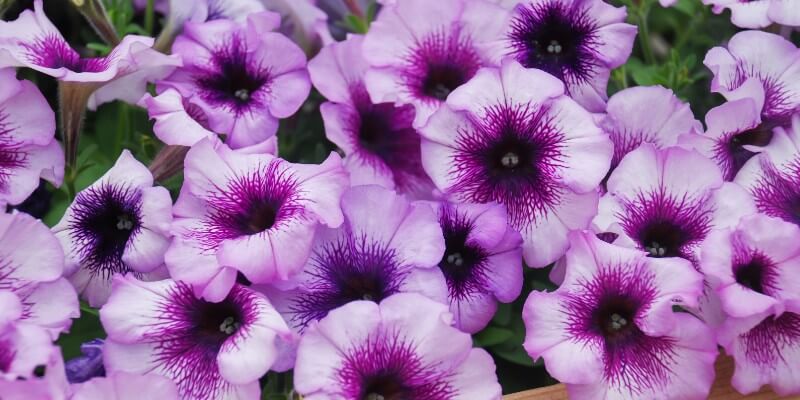
Chrysanthemums
One of the most effective pest repellents a gardener can buy is the chrysanthemum, which contains an ingredient named pyrethrum that effectively drives away many bugs, including:
- Ants
- Japanese Beetles
- Ticks
- Silverfish
- Lice
- Spider Mites
The pyrethrum can kill jumping insects, making them forceful enemies to garden pests. The ingredient is so effective; it is commonly used in natural insecticides used to spray on all varieties of flowers, plants and vegetables to ward off pests.
With over 130 years of experience in growing Chrysanthemums, Woolmans have a great selection to choose from!
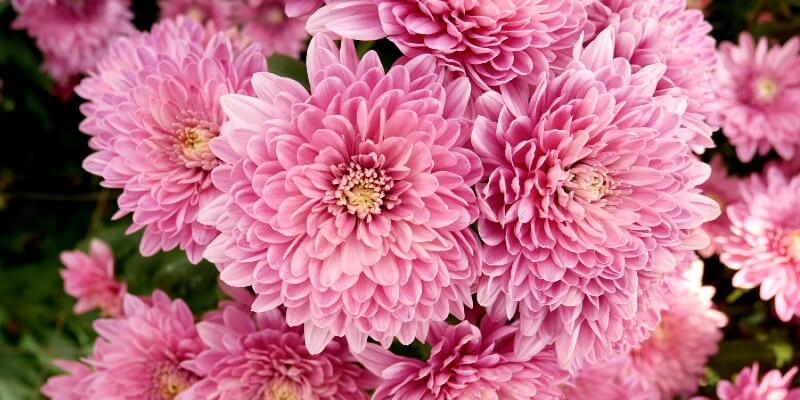
Borage
This pretty star-shaped flower will self-sow once seeds have been planted and reappear each year. It is an excellent addition to any outside space since it not only attracts beneficial pollinators such as bees and wasps to your garden but also repels pests that can get to your lovely garden vegetables. These include the following:
- Tomato Hornworms
- Cabbage Worms
As well as doing a great job in keeping pests away, borage actually helps to build up the resistance of any surrounding plants. If herbal teas are something you enjoy, the leaves are also great to use in this way and are said to help battle stress, prevent allergies and strengthen the immune system. The Homestead Garden has an easy recipe you can follow if you’d like to use this multi-talented flower in tea. You can buy borage at a great price from Suttons, and you’ll be reaping the benefits before you know it.
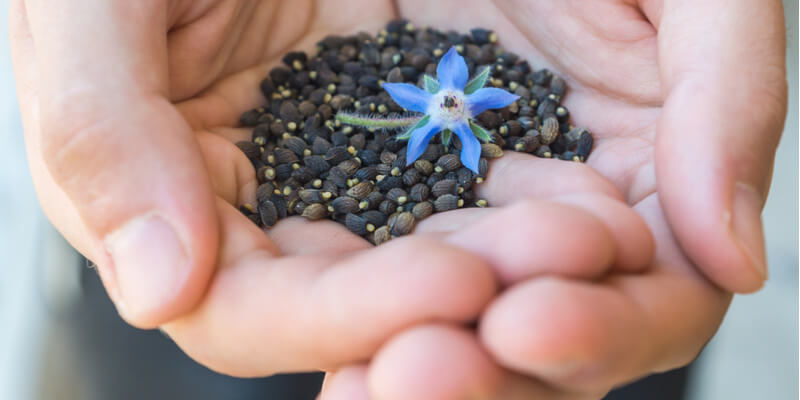
Calendula
A close relation to the Marigold, this flower not only attracts many of the good guys, including hoverflies that help to keep pests such as aphids in check but also deter the following not-so-helpful insects:
- Asparagus Beetle
- Tomato Hornworm
Calendulas make a beautiful addition to any flower bed, along with proving to be an asset to all avid gardeners in terms of pest control. You can pick some up in various quantities and colours from Sarah Raven.
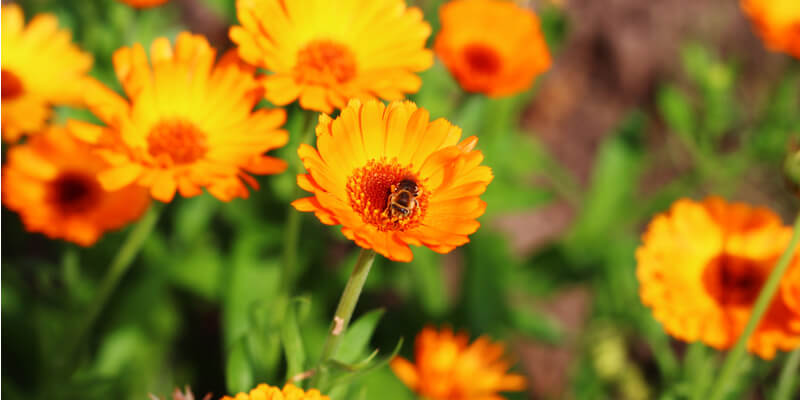
Geraniums
These delicate flowers may not look it, but they are incredibly robust and help to repel a whole host of garden pests, including:
- Mosquitoes
- Japanese Beetles
- Leafhoppers
- Corn Earworm
It is said that geranium essential oil is great to drop on the skin if you are prone to mosquito bites during the summer months, so why not invest in some for yourself as well as your garden? You Garden have some of the plants on offer, providing you with the perfect opportunity to add their purple hues to your garden.
Plants That Repel Rodents:
While smaller insects are the most common pests, many gardeners suffer from the presence of larger visitors, which inevitably can be far more damaging. So, let’s take a look at the top plants that repel rodents:
Mole Plant
This pest repelling weapon is known as the Mole Plant and helps to keep away the following animals:
- Moles
- Mice
- Gophers
Not only are these all very unpleasant guests to have, but they can also wreak havoc on your garden in a very big way. Molehills and mice droppings can transform your garden from a lovely, relaxing space into a pest-infested enclosure, so the use of Mole Plant is highly recommended. Containing the ingredient, castor oil – a well-known mole repellent – makes this plant top of the list if these pesky creatures are visiting your garden. Victoriana Nursery sells this plant and offers further information on the way in which it repels moles.
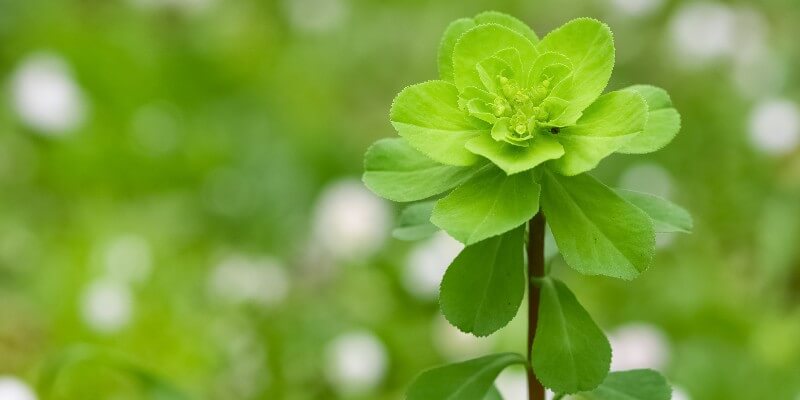
Sage
Another plant that will prove more than just a rodent repellent is sage. White or green sage, in particular, has been proven to prevent the following from creeping their way into your garden:
- Mice
- Rats
- Cabbage Moths
- Black Flea Beetles
Much like basil and lavender, sage has a strong aroma which, while pleasant for humans, is overwhelming for rodents and bugs. Most gardeners opt for placing sage around the plants that are being targeted, creating an effective yet hugely affordable barrier. And even better, sage is one of the more versatile plants, which means it will happily grow in any soil type so long as it is exposed to the sun.
Once the sage leaves are ready for harvest, you will have plenty of tasty ways to use your homegrown herb. From meat to pasta dishes, MasterClass has put together a great article on how to cook with sage!
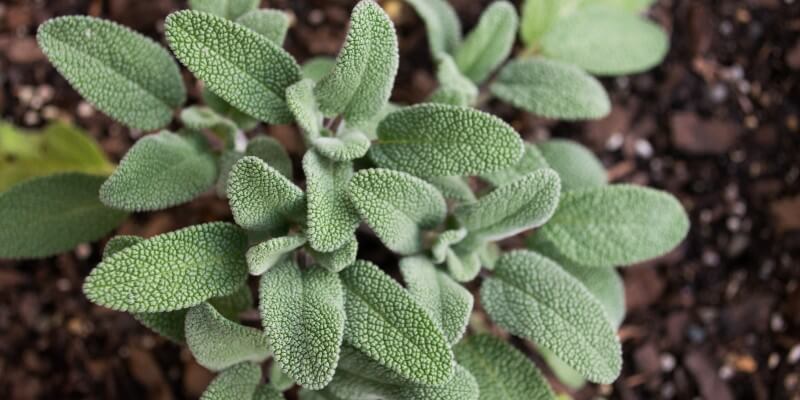
Oregano
If you’re unlikely to use sage once harvested, an alternative herb that is just as useful as a rodent repellent is oregano. When planted around the area that you are hoping to protect, oregano will help to repel the following uninvited guests:
- Rats
- Mosquitos
Most gardeners opt for using oregano to shield garlic, onions and chives in particular, so it is most definitely a valuable addition to your vegetable patch. Ideally, oregano should be homed in an area that sees at least 6 hours of sun a day and can receive a steady supply of moisture. You can find more information on how to plant and care for oregano on the This Is My Garden website!
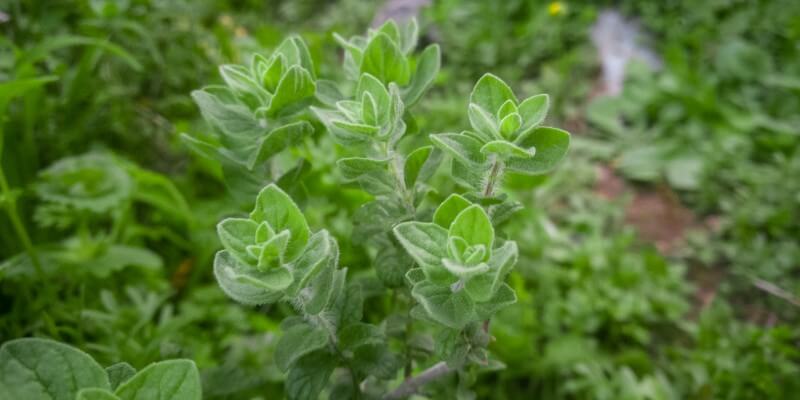
Keeping Your Garden Well Maintained!
By now, you should have many ideas as to how you can keep those pesky creatures well away from your garden. Don’t let your efforts to create a haven of natural beauty be destroyed by any of the pests listed above – arm your outside areas with protective plants. If you are in the process of preparing your commercial garden for the next season and need professional help, our team specialise in grounds maintenance services in Milton Keynes and the surrounding areas, allowing you to leave all of the work to the professionals!

